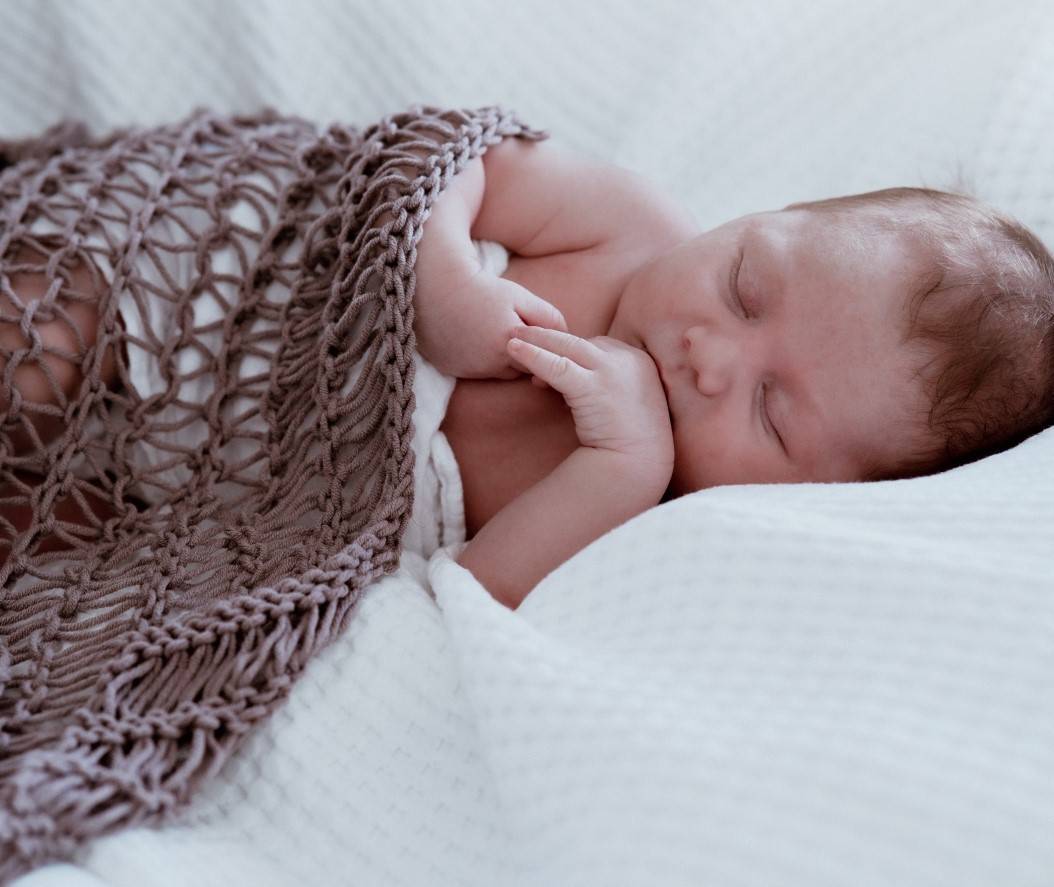Do you have a hard time getting your baby to sleep through the night? If so, you are not alone. A lot of new parents struggle with this issue. Thankfully, there are some things that you can do to help improve your baby's sleep quality. In this blog post, we will discuss 10 tips that should help get your little one sleeping soundly!
A breathing monitor can make sure your baby is sleeping soundly and safely. This can be especially helpful if they've got snoring or apnea issues! A good quality device will give you piece of mind that their lungs are working properly while they rest throughout the night, which could help prevent injuries from occurring in rare cases where there was actually something wrong with how things were going before (like skinny little legs).
2. Check for signs of sleep apnea:
This is a condition where your baby stops breathing for brief periods during sleep, so it's important to check if you notice any suspicious activity or behaviours when they are sleeping! Whether you're just checking up on your baby or have been assured they are sleeping soundly, it's important that sleep apnea be checked for. A condition where their breathing is interrupted during REM (rapid eye movement) phase can cause serious complications like increased chances at youthful onset hypothyroidism which leads to developmental delays in children as well adult-onset weight gain because our bodies stop producing enough hormones while we're asleep!
3. Make sure the crib is comfortable:
A comfortable crib is important for all babies, but it can be especially important for newborns. Newborns need a comfortable crib because they're just starting their lives. It's important that the mattress is firm and there aren't any loose blankets or pillows which could pose suffocation hazards to these little ones! A comfortable bed helps babies sleep better which means parents get more rest too since we're operating at full capacity when our child is happy.
4. Put your baby on their back to sleep and put your baby to bed drowsy, but awake:
Sleeping on their back is the safest position for babies. This is the number one recommendation from doctors to prevent Sudden Infant Death Syndrome (SIDS). It is also helpful in preventing your baby from choking on vomit. You may also want your baby to be able to fall asleep on their own, so it is important to put them down when they are still drowsy. This way, they will learn to self-soothe and get back to sleep if they wake up in the middle of the night.
5. Use a white noise machine:
A white noise machine is an excellent way to help them wind down at night without having any trouble falling asleep yourself or with others in close proximity of where they are sleeping. White noises have been proven over time as being effective for masking outside sounds which won't easily wake someone up when used correctly.
6. Establish a bedtime routine:
A bedtime routine can help to signal to your baby that it is time to sleep. This might include a bath, some quiet time, and then being put in their crib awake but drowsy. You may also try keeping the routine simple, such as giving them a bath, reading a story, and singing a lullaby.
7. Generate a dark and quiet environment:
To help your baby fall asleep easily, it is best that you have a dark and quiet room. If this doesn't work for some reason or if they're just not ready yet then try these other ways of cues to see what works! You can use blackout curtains as well invest in nightlights when the lights go out at home so their little ones always feel safe while sleeping soundly after long days exploring all by themselves.
8. Make sure they are comfortable:
You may not realize it, but your baby's sleep environment can have a big impact on their mood and development. Make sure you are accommodate all of these needs to help them thrive! A comfortable temperature is important for both adults as well as children because the body requires energy in order grow; without enough restful nights' sleep we'll never be able achieve those healthy weights everyone wants nowadays (not just babies).
9. Use a pulse oximeter:
A pulse oximeter can help to monitor your baby's oxygen levels and heart rate. This is especially important for newborns who may have a breathing problem that goes unnoticed until it becomes serious enough to be diagnosed by an experienced nurse practitioner or doctor, saving you both time and money in medical care costs if caught early on! If they are low, it could be a sign of a breathing problem.
10. Talk to your doctor:
If you are concerned about your baby's sleep, be sure to talk to your child's doctor. The best way to help your baby sleep better is to make sure they are loved all the time. Make an appointment with your doctor for a consultation. Find out early on what material bedding or clothing your baby will be uncomfortable with. They can offer guidance and support in helping you to create a healthy sleep environment for your baby.
Conclusion
Though there are many things you can do to improve your baby's sleep quality. A breathing monitor can give you peace of mind that your baby is breathing safely throughout the night. Additionally, using a pulse oximeter can help to monitor your baby's oxygen levels and heart rate. This is especially important for newborns. Babies are precious and deserve the best sleep quality possible. If you have any concerns about your baby's sleep, be sure to consult with a doctor. They can offer guidance and support that will help ensure your little one gets the best rest possible. Enjoy the greatest peace of mind and happiness you can get from parenting.








Leave a comment